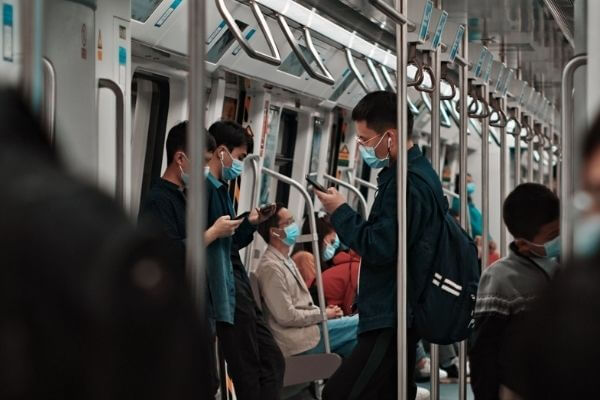
Key takeaways:
- It is through public interest litigation that China’s Procuratorate has entered the new battlefield, strengthening supervision of the Internet industry.
- The newly-issued “Rules for the Handling of Public Interest Litigation Cases by People's Procuratorates” (人民检察院公益诉讼办案规则) has equipped local procuratorates with guidelines in handling public interest litigation.
On 15 Aug. 2021, the Beijing Haidian District People’s Procuratorate (“Haidian Procuratorate”) announced that it intended to file a civil public interest lawsuit against Tencent, alleging that the “youth mode” of its popular messaging app WeChat fails to comply with the Law on the Protection of Minors and infringed on the legitimate rights and interests of minors.
Previously, public interest lawsuits filed by Chinese procuratorates were more often related to traditional areas such as environmental and resource protection, state-owned property protection, as well as food and drug safety.
In recent years, there have been incidents where the public interest has been infringed upon in cyberspace. Confronted with the Internet giants, the individuals or related subjects whose rights and interests are damaged often give up resorting to justice.
China’s administrative authorities are currently strengthening the regulation of Internet giants, and the courts will adjudicate on a case-by-case basis to correct their behavior.
Recently, the Procuratorate has also entered this battlefield and has been conducting supervision of the Internet industry through public interest litigation.
I. The public interest litigation for the minors involving the Internet
The newly amended Law on the Protection of Minors in 2020 stipulates that when the legitimate rights and interests of minors are violated and the relevant organizations and individuals fail to file a lawsuit with a court on their behalf, the Procuratorates may supervise and support them in filing a lawsuit; when the public interests are involved, the Procuratorates are authorized to initiate public interest litigation.
By now, there have been two major public interest litigations in terms of minors’ protection.
In addition to the aforementioned Haidian Procuratorate’s proposed litigation against Tencent, another well-known case is the public interest litigation brought by Hangzhou Yuhang District People’s Procuratorate (“Yuhang Procuratorate”) against Kuaishou for the infringement of children’s personal information.
As a result, Kuaishou agreed to rectify and pay damages to the relevant public interest organizations.
Kuaishou is one of the two largest short-video apps in China aside from Douyin, the Chinese version of short video-sharing app TikTok.
In that case, without the valid express consent of the children’s guardians, Kuaishou allowed the registration of children’s accounts and the processing of large amounts of children’s personal information, and directly sent short videos containing children’s personal information to users with relevant preferences, while failing to take technical measures to specifically protect children’s information.
The Yuhang Procuratorate alleged that these practices posed a potential risk to the personal safety and peace of unspecified children, and may let some personal information of children be used illegally and result in harm.
On 2 Dec. 2020, the Yuhang Procuratorate filed a civil public interest lawsuit with the Hangzhou Internet Court, requesting Kuaishou to be ordered to immediately stop committing acts of infringement by using the company’s app to infringe on children’s personal information, make apologies, eliminate the impact, pay damages and hand over the money to relevant child protection public interest organizations.
During the lawsuit, the two parties reached a settlement. Kuaishou promised to rectify many aspects of the App, detailing 34 rectification measures in four major areas, including registration of child users, collection of children’s personal information, storage, use and sharing of children’s personal information, and active protection of children’s network safety. It also proposed a specific timetable for implementing the rectification measures.
II. What is public interest procuratorate?
We have introduced the public interest procuratorate in an earlier post. It refers to the public interest litigation brought by the procuratorate.
According to the “Interpretation of Certain Issues Concerning the Application of Law in Procuratorial Public Interest Litigation Cases”(关于检察公益诉讼案件适用法律若干问题的解释) issued by the Supreme People’s Court (SPC) and the Supreme People’s Procuratorate (SPP) in 2018, the Procuratorates are authorized to bring public interest litigation in civil cases and pursue the civil liability of the other party, or to bring public interest litigation in administrative cases and pursue the administrative liability of the administrative organs.
Only after 2018 did public interest litigation become one of the main powers of the Procuratorate. (See What Does the PRC Procurators Law Say)
Prior to that, the Procuratorate’s main competencies included: (1) prosecuting cases that had been investigated by the public security organs in criminal cases; and (2) initiating the adjudication supervision procedure in the case of wrongful judgments; (3) investigating cases involving embezzlement and offenses in office.
Different from (1) and (2), the Procuratorate has the initiative to exert the third power, namely, the investigation of embezzlement and offenses in office.
However, in the 2018 reform, it was transferred to the newly established Supervisory Commission, reducing an active power of the Procuratorate.
At the same time, the Procuratorate gained the power to initiate public interest litigation. This authority not only gives the Prosecutor a new power that can be exerted actively, but also allows it to be used in a broader social scope.
Clearly, the Procuratorate is now promoting the development of public interest litigation and thus expanding its influence.
On 1 July 2021, the SPP began implementing the “Rules for the Handling of Public Interest Litigation Cases by People's Procuratorates” (人民检察院公益诉讼办案规则), which clarifies the procedures and practices of the Procuratorate in handling public interest litigation. With a set of clear rules, local procuratorates may be more decisive in bringing public interest litigation.
The public interest lawsuit filed by the Haidian Procuratorate against Tencent over WeChat in August is a good example of how procuratorates are encouraged by the Rules.
Photo by Joshua Fernandez on Unsplash
Contributors: Guodong Du 杜国栋







